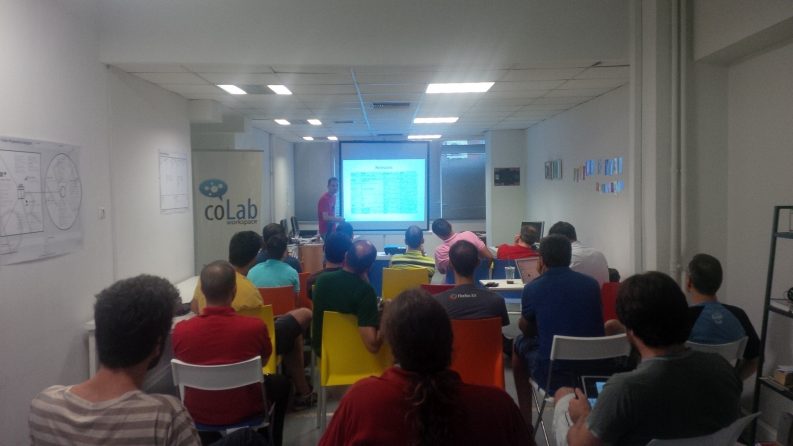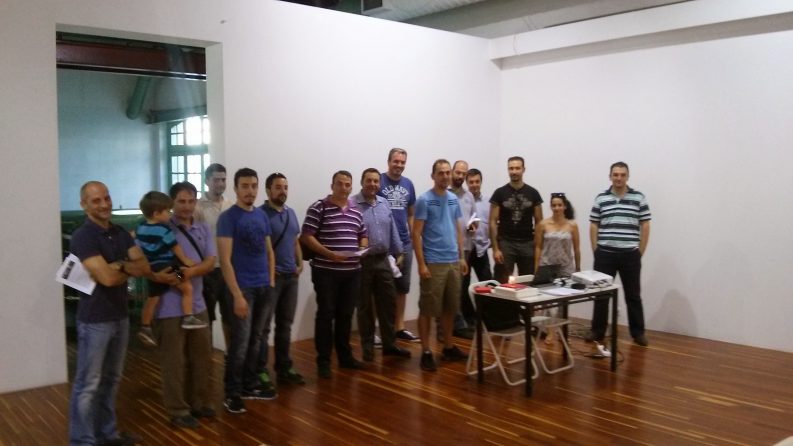Throughout the month of July, we’re featuring user groups from across the world to learn about how each group operates. Today, we hear from Athens.
Greece’s OpenStack Group meets monthly in a local co-working space in Athens. Learn more about their user group by visiting their Meetup page here.
1) How long has your user group been around? Describe how it formed.
The user group in Athens is active for the last year. It was, and still is, my job to find and meet more people that are interested or working in the project. After reading several blog posts and the wiki page on openstack.org, I decided to go ahead and start the local user group together with Spyros from CoLab Athens. Using a meetup page and social media, we have eventually managed to gather people together and hold our first meetings.
2) Describe a typical user group meeting.
We usually meet once a month and the average attendance is about 15 stackers. In #OSATH we follow a predefined agenda containing a presentation followed by discussion on a specific topic.
Many times our discussion continues with issues and clarifications on the broader OpenStack field, with users sharing their experience or seeking to extract information from existing deployments and use cases.
As to the level of our meetings, I would say most of us are in the beginner stage. We often make introductory presentation for new and old members to get familiarized with the project. We also try to keep things practical by organizing devstack workshops open to everyone.

3) How do the members of your user group collaborate outside of meetings?
We have setup an email list hosted on the project’s infrastructure under the address [email protected].
4) What are the three most important questions about OpenStack that are burning in your user group’s mind?
Well, I could say the most popular question is: "How about the use cases? What exactly can I use OpenStack for?" While this seems a bit vague, I understand that people coming from a specific IT or business environment are not familiar with cloud computing and the mindset around it, so they come to ask how the can practically utilize this emerging technology.
Another, similar to the previous question is: "How do I migrate my current workload in OpenStack?" as many of our members run their own (enterprise or smaller) infrastructure they are thinking of the path to transfer existing application in cloud environment.
Deployment issues are always on the forefront. Even if there are easy to access distributions by OpenStack companies, our users are usually concerned on high-level design and architecture topics. Especially when different underlying products, like hypervisors, storage systems or network gear come into play. There are so many questions that we usually have enough homework till the next meeting!

5)What’s one piece of advice you would give to new users?
I would encourage them to experiment as much as they can and share anything they feel with the community. Problems are equally welcome as solutions. Also, find one of the many ways to contribute back to the community. After all, someone who experiments and shares things on OpenStack is a valuable contributor.
6) What have been the biggest benefits to your user group members in using OpenStack?
In #OSATH, we have members coming from the academic as well as the enterprise field. While people in the academic field are more flexible about testing new things, strong interest is apparent from engineers working in production environments.
This is a key benefit to our members as they are able to hear different problems and solutions and exchange experiences directly in our discussion panels. One use case we heard of recently is about automating the setup of a virtual lab in a university department at TEI Piraeus. The main benefit was the deployment speed achieved by automating lab processes and eliminating human mistakes.
We have also heard of cases that startups are utilizing the OpenStack API to offer services, such as the one of mist.io that builds a cloud monitoring solution to support OpenStack among other clouds.
///
If you’re interested in participating in Superuser’s User Spotlights this month, please email us at [email protected]. We’d love to learn more about your group!
- Musings and Predictions from Superuser’s Editorial Advisors - January 29, 2015
- Kilo Update: Trove - January 9, 2015
- Kilo Update: Ceilometer - December 19, 2014

)










